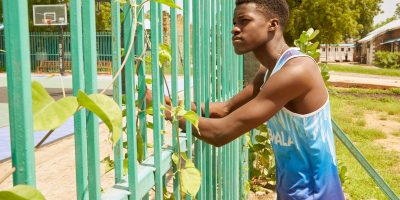This brief summarises key considerations concerning cross-border dynamics between South Sudan and the Democratic Republic of Congo (DRC) in the context of the outbreak of Ebola in North Kivu and surrounding provinces. In light of the DRC outbreak, South Sudan began preparedness activities in August 2018 with the development of the first South Sudan National Ebola Preparedness Plan (August 2018 – March 2019) and the formation of the National Ebola Task Force (NTF) and Technical Working Groups (TWGs). Health care workers, frontline workers, community volunteers and military personnel in high risk states were trained on EVD surveillance (detection, alert and investigation), management of suspected and confirmed cases, laboratory safety procedures, safe and dignified burials, risk communication and social mobilisation, and infection prevention and control (IPC).
An Emergency Operations Center (EOC) was established in Juba and a free hotline to report EVD alerts set up (with the call-in number 6666). Rapid Response Teams (RRTs) were put in place across the country and local capacity for GeneXpert testing was established. Screening points and four isolation units were set up and vaccination of frontline health workers started. The focus of the Second EVD Preparedness Plan (April – September 2019) shifted from initial preparedness needs to active response should a single case be confirmed. Priority activities included establishing effective mechanisms for the notification of an event, public messaging on prevention and further spread, the rapid deployment of multidisciplinary RRTs, the implementation of targeted containment measures and a coherent package of activities for the operation of isolation facilities including basic maintenance, the ability to scale up the number of staff and supplies, and streamlined local control and management in the event of patient care being launched. In November 2018, WHO conducted an assessment of South Sudan’s overall Ebola readiness level and rated it 17% prepared. A more recent assessment in March 2019 found the country was 61% prepared and the WHO reported in June 2019 that 2,793 frontline health workers had received prophylactic vaccination with the Merck vaccine (rVSV-ZEBOV).



![On 14 August 2018, 'Dieudonne' [not his real name], a thirteen year old boy who lost eight members of his immediate family to Ebola, stands in Ebola-affected Mangina, North Kivu, the Democratic Republic of the Congo (DRC).
“There were eight of them and they are all dead,” says Dieudonné*, a young 13-year-old boy living in Mangina, the Democratic Republic of the Congo, where 27 cases of Ebola were recently confirmed. It all started when Dieudonné’s mother fell ill and died. “When we buried Mum, the family was next to her body,” the young boy explains. “Soon after, everyone began to have headaches and diarrhoea.”
When his big sister was admitted to the Ebola treatment centre, Dieudonné stayed in the little family home alone, the same house that was the starting point of all his hardship. “Everyone who entered our home fell sick,” the boy recalls. At only 13 years of age, Dieudonné has lost all his bearings, all the people that he loved and on whom he could count. “I don’t have anyone who can take care of me anymore,” sadly explains the young boy, who does not know if his sister will survive the disease.
Dieudonné is one of 53 children orphaned by Ebola that UNICEF has identified in the east of the DRC. He currently benefits from psychosocial, material and dietary support. Dieudonné was also vaccinated against the disease a few days ago.
The young boy does not what his future will be. “I have to continue to live but I do not know how I will make it,” he explains. “This is serious.”
Following the 1 August 2018 announcement by the Government of the Democratic Republic of the Congo (DRC) of a new Ebola Virus Disease (EVD) outbreak in North Kivu, UNICEF has mobilized its teams to help contain the spread of the disease and protect children. The impact of an outbreak on children can be far reaching. It’s known from earlier outbreaks in the DRC as well as in West Africa that children can be affected in various ways. Children ca UNICEF/UN0229875/Naftalin](https://www.socialscienceinaction.org/wp-content/uploads/2018/10/UN0229875-1024x683.jpg)
